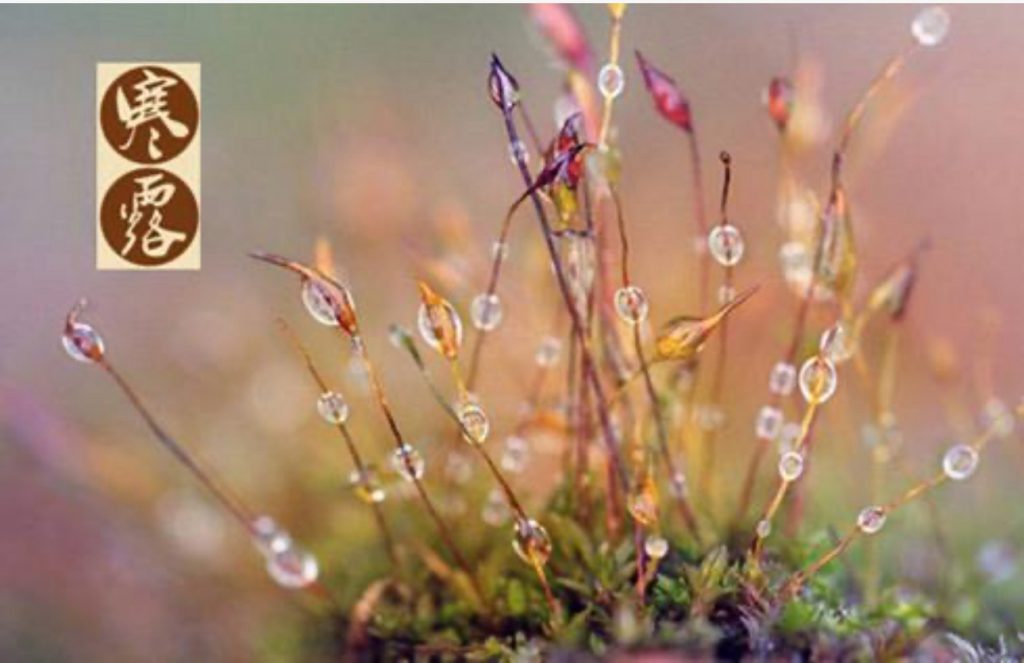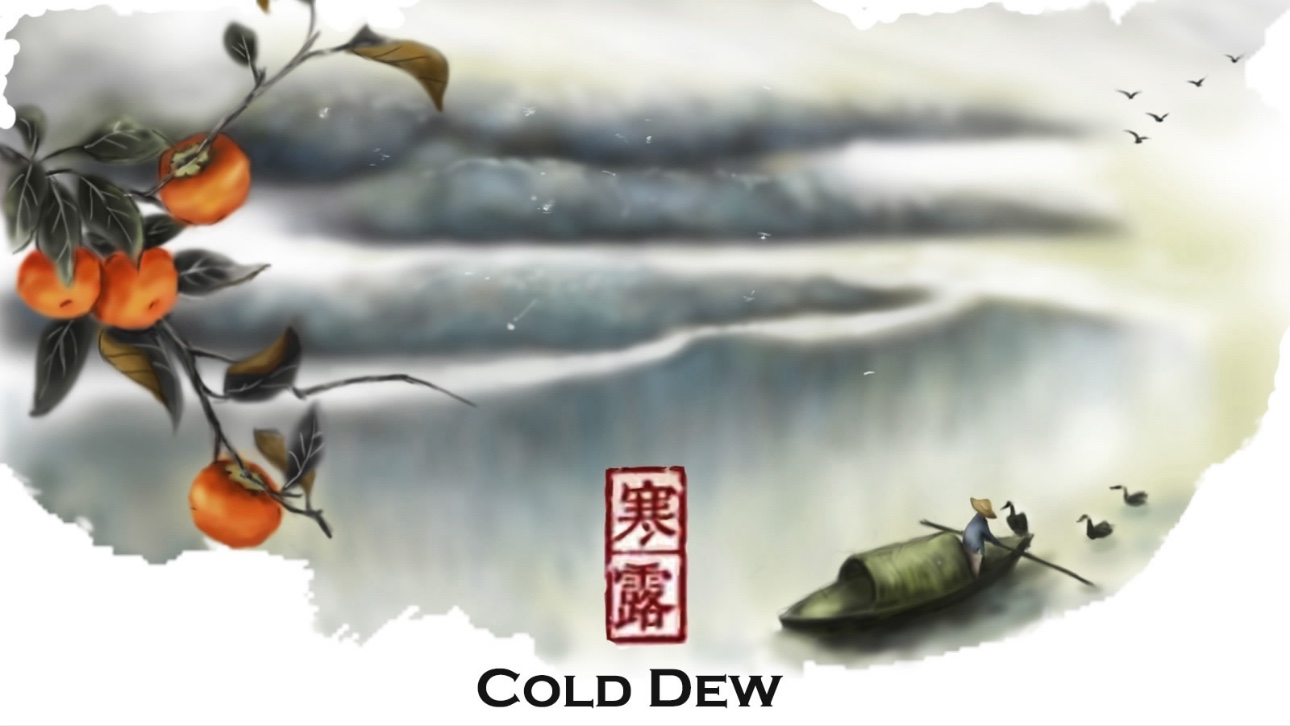The 24 Solar Terms

Today is the ninth of October. The Chinese international school where I work has just put a message on its social media to remind all employees that today is the day of ‘Cold Dew’ which in Chinese is 寒露. ‘Cold Dew’ is a day that marks the changing seasons, specifically telling us to expect colder weather as we approach the end of Autumn.
So what is ‘Cold Dew’ and why is this reminder important to my colleagues?
Cold Dew is one of the 24 solar terms. Broadly the seasons in China follow the same pattern as in England. However the Chinese further subdivide the four seasons into smaller, more finely tuned passages of time using these 24 terms. For example Autumn starts with ‘End of Heat’ and moves through ‘White Dew’, ‘Autumn Equinox’, ‘Cold Dew’ and ‘Frost Descent’ to ‘Start of Winter’.
Each solar term represents a set of changes in the weather. The origin of the terms in the agricultural year can be seen by the fact that each solar term is accompanied by information for farmers about what they should do at each turning point to ensure a good harvest or the health of livestock.
I’m certain that in Britain before industrialisation the same set of ideas were also common knowledge. For Cold dew it tells me that, ‘ At this time, temperatures are much lower than during White Dew in most areas of China. The dew is greater and colder and there will be less rain. Autumn crops will be ripe.’
But why would this information be of interest to my colleagues? They work in education and are very unlikely to even have a garden, because private gardens are rare in Beijing, although communal allotments are popular. The enduring meaning of these solar terms is that they also come with a set of information about how we can ensure health and well-being as we adapt to the changing seasons.
For example, during the current period of Cold Dew the advice is to eat the now ripening hawthorn berries. And this is not just folklore. Scientific study has shown that the antioxidants in the berries support good cardiovascular health. In terms of wellbeing the advice is that Cold Dew is a good time to go hiking. Again we can see this is more than superstition. Not only is late autumn visually inspirational, it’s also the last chance to get in some healthy exercise before the icy grip of winter drives everyone indoors.
So these 24 solar terms are intensely practical. You could say that they are the equivalent of the sort of public health announcements we have in the UK, where for example, we are all being reminded to get our flu jabs for the coming winter.
However I think their real function in society goes deeper than this. First of all they maintain the idea of community formed in agricultural societies. It’s like having the village elders still looking after you, gently reminding you, ‘you need to start wearing an extra layer you know, it’s getting colder now’. I think we all know that all Chinese people cherish the idea of their ‘老家’, their ‘laojia’ or ‘hometown’. And these solar terms are a cultural way of preserving that connection.
Even if you lead a modern, busy lifestyle in cosmopolitan Shanghai, remembering the 24 solar terms takes you back, if only fleetingly, to your roots. Some might say it’s all just superstition, but I can see that it is another part of the wider stability of Chinese society, a stability that is an important platform for change.
And I think there is another layer, even deeper than community. Sociologists often say that modern, urban life is ‘deracinated’, which simply means we have ‘lost our roots in nature’. Of course no-one would welcome back the poverty and lack of opportunity of being entirely tied to agricultural lifestyles, but in my mind there is no doubt that our lives are unbalanced if our wellbeing loses harmony with the rhythms of nature.
As soon as I say something like this your scientific brain says, ‘superstitious nonsense’ which is precisely why the cultural observance of things like the 24 solar terms is so important. Quietly, unobtrusively it re-connects my Chinese colleagues to the enduring benefits of community and following the cycles of nature.
(If you are interested in these 24 Solar Terms and would like to follow them through the changing year, you can find interesting and beautifully illustrated articles for each term on the CGTN news website or App)
